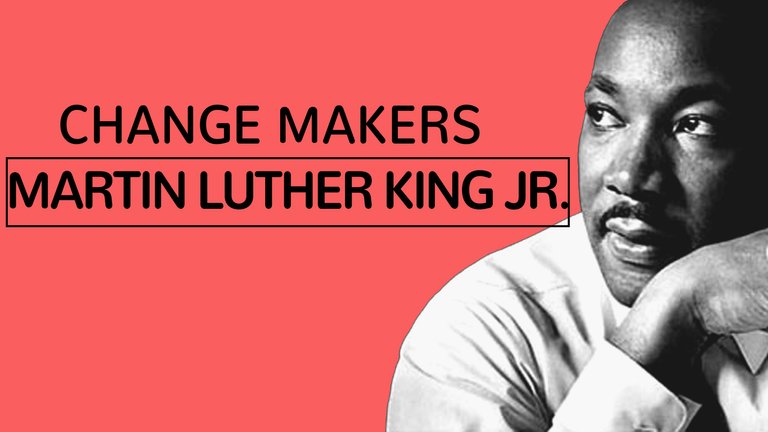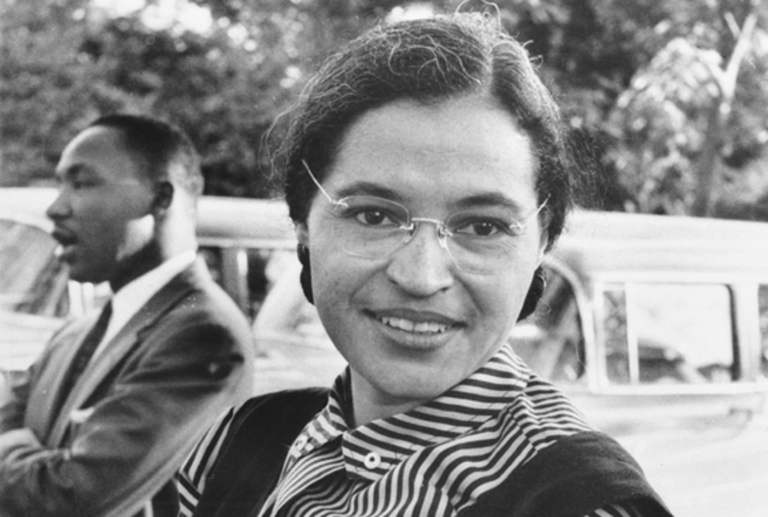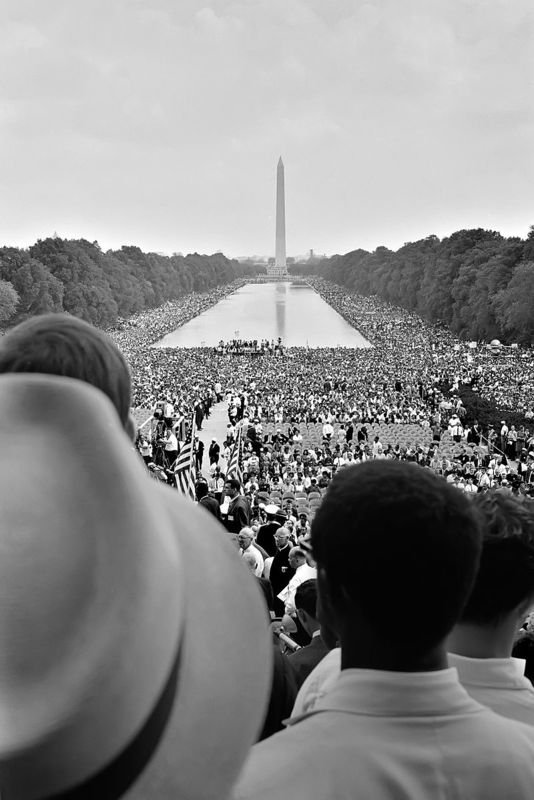
“Fearlessness in those without power is maddening to those who have it.” - Tobias Wolff
Martin Luther King Jr. is a manifestation of this idea. A common man, with a rebellious soul, turned out to be an example for the entire world on how the will of one person, was enough to change the world for the better, touching so many lives in the process and delivering justice where justice was due.
Early Days
Martin Luther King Jr. was born on January 15, 1929, in Atlanta, Georgia. He had a strict father who often whipped him until he was 15. He wanted his son to make something out of himself.
This strict nature of his father was only balanced out by his mother’s kind, affectionate and warm presence.

As with many great men, he had begun showing promise since his childhood. Martin Luther Jr. had started showing fearlessness, pride and defiance early on, taking after his father. He even skipped the 9th and 11th grade at school and entered the Morehouse College in Atlanta at age 15.
Education
At a time when young boys were enlisting in the World War II, King was attending Morehouse College, a respected, historically black college.
In 1946, The Atlanta Constitution published King’s letter to the editor, stating that black people "are entitled to the basic rights and opportunities of American citizens." He was 17 at the time.
In the year preceding his last year at Morehouse, King decided to enter the ministry and thus, got ordained and appointed as assistant pastor at Ebenezer Baptist Church in Atlanta.

King then went on to graduate with a B.Div. degree from Crozer Theological Seminary, began his pastorate at Dexter Avenue Baptist Church in Montgomery, Alabama. After a year, he received his Ph.D. degree in 1955 at the age of just 25. He also met his wife during this period.
Montgomery Bus Boycott, 1955
This incident, is perhaps what started it all for King. The path he was already on was an academic one and he was building a career out of it. But an incident in Montgomery changed everything for him.
In December 1955, Montgomery’s black leaders formed the Montgomery Improvement Association (MIA) to protest the arrest of Rosa Park for refusing to give up her bus seat to a white man. They selected King to head this group as he was young, well-trained and had professional standing.
On December 1, 1955, Rosa Parks had refused to give up her seat for a white man and was therefore arrested. To protest against this, King along with E.D. Nixon, called for The Montgomery bus boycott. This lasted for 385 days.

Rosa Parks with Martin Luther King Jr. (1955)
King showed distinct and immense leadership abilities throughout the time. The situation got so intense that King’s house was even bombed. But in the end victory was his and the law mandating segregation in public transportation was finally lifted.
The Southern Christian Leadership Conference
The Montgomery victory started a snow ball effect. King wanted to take this success nationwide. So, in 1957, Martin Luther King Jr., Ralph Abernathy, Fred Shuttlesworth, Joseph Lowery, and other activists founded the Souther Christian Leadership Conference.
This organisation became the voice of the African Americans who were the victims of racial abuse and a platform for all those who wanted change. It was the base of operations of King as well as a national platform.

On February 18, 1957, King appeared on the cover of Time magazine and on 17 May, it was the first time he addressed the national audience.
On September 20, 1958, he was almost killed, when Izola Ware Curry stabbed him with a letter opener during a book signing. He was hospitalised for several weeks but averted death.
On February 3, 1959, King, inspired by Gandhi’s success in the non-violent movement, decided to visit India. He met with a lot of Gandhi’s followers and was deeply inspired by this visit.
Media Coverage
By 1960, King had become a prominent figure in the Civil Rights Movement. The media was finally beginning to show the sufferings and indignities of the African-American people in the south with journalistic accounts and video footage.
This made the American public sympathise with the movement as they finally realised the equal rights movement was very important and the things that the black community had to tolerate everyday was simply inhuman.
I Have A Dream
On August 28, 1963, King organised The March on Washington for Jobs and Freedom which attracted more than 200,000 demonstrators and it was here that he delivered his famous “I have a dream” speech. It moved people. It fostered change and had a strong effect on public opinion.

The direct result of this march was the passing of the Civil Rights Act in 1964. King also received the Nobel Peace Prize in 1964. He pledged that ever penny of the $54,000 award would be used in the ongoing civil rights struggle.
“I have a dream that my four little children will one day live in a nation where they will not be judged by the color of their skin but by the content of their character.
I have a dream today.
I have a dream that one day, down in Alabama, with its vicious racists, with its governor having his lips dripping with the words of interposition and nullification; one day right there in Alabama, little black boys and black girls will be able to join hands with little white boys and white girls as sisters and brothers.
I have a dream today.”
An excerpt from the speech “I have a dream” by Martin Luther King Jr.

The March on Washington
Struggles of 1960s
King continued the movement with full flare throughout the 60s. He visited countless places and organised countless demonstrations in keeping with his non-violence motto. In 1964, Time Magazine named him “Man of the Year”
On March 17-25, 1965, King got involved in the Selma voting rights movement. Earlier attempt to do so on march 7 had led to a beating of the demonstrators by the mob and the police which came to be known as the Bloody Sunday.

Demonstrators at the Selma Voting Rights Movement
Between 1965 and 1967, King expanded his movement to the larger cities, like Chicago, Los Angeles, New York, Mississippi, Alabama, organising several marches for several causes all towards the same end goal of equal rights.
In 1968, King also organised the ‘Poor People’s Campaign” to assemble an army of poor people to march on Washington so that Congress would be compelled to draft an “economic bill of rights” for poor Americans.
Assassination
On April 3, 1968, King delivers what would be his final speech , “I’ve been to the mountaintop” at an evening rally at Mason Temple in Memphis.
The speech seemed prophetic when he said, “….and I’ve seen the promised land. I may not get there with you. But I want you to know tonight, that we, as a people, will get to the promised land…” because he was assassinated the very next day!
On April 4, 1968, King was shot by a sniper as he stood on the balcony of a motel. He was rushed to the hospital but after an emergency surgery, he was pronounced dead. Just days after his death, Congress passed the Civil Rights Act of 1968.

The Lorraine Motel, where King was assassinated.
Final Thoughts
Martin Luther King Jr. has left a historic legacy behind. He advocated that all men and women are equal, which may seem so trivial and a commonsensical idea but he had to sacrifice his life for it and we lost another great man to history. Today, he is the most widely known African-America leader of his era.
"Darkness cannot drive out darkness; only light can do that. Hate cannot drive out hate; only love can do that." - Martin Luther King Jr.
"Change Makers" is a series where I write about people who have had a major impact on the human race. It is to honour their contributions and visions, which have left a visible mark in history. These are great men and women that the world knows and loves.
I would love some suggestions on whom to write about next. Do check out Change Makers #1 and my Knowledge Base and WhatTheFacts series as well. If you like my content, please Follow Me.
Another great article @sauravarungta !!
Thank you :)
upvoted
thank you :)
Martin Luther King Jr. Was a great man!
Yeah he was! :)
He was one of the most influential persons in the world in modern history. He is well known in parts of south america and europe, and had contributed a lot to humanity.
thank you for reading :)
Fantastic job, really nice minibiopic on Dr. King. King's message of peace, and inclusivity is still as needed and true to day as it was in the 50's and 60's .
thank you :) yes even today we see racial abuse going on throughout the world. Hope people see the light of the day and just live in peace and harmony.
Great read! You're doing a good job. The series should be fun :D
this post.Also, I suggest you to provide the image sources as suggested by @cheetah in
ok sure will do that in the future!
thanks you for reading :)
Good job my friend :)
thank you so much :)
😄